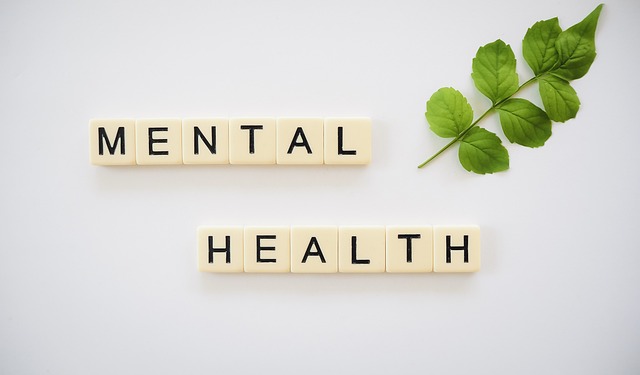In recent years, artificial intelligence (AI) has made significant strides in transforming various fields, including mental health and wellbeing. With the increasing demand for accessible mental health resources, AI tools have emerged as valuable aids in providing support and fostering wellbeing.
This blog post explores a range of free AI tools that can help individuals manage their mental health, improve their emotional state, and promote overall wellbeing.
Understanding AI’s Role in Mental Health
AI technology, when applied to mental health, offers innovative solutions that can complement traditional therapeutic practices. These tools leverage algorithms and data analysis to provide personalized support, track progress, and offer insights into mental health patterns. While they are not a replacement for professional therapy or medical advice, they can serve as supplementary resources to enhance mental wellness.
AI-Powered Chatbots for Mental Health Support
AI-powered chatbots are transforming the landscape of mental health support by providing immediate, accessible, and personalized assistance. These digital companions leverage advanced algorithms and natural language processing to engage users in meaningful conversations, offer coping strategies, and track emotional well-being. Unlike traditional therapy, which often requires scheduling and may not be available on demand, chatbots are available 24/7, providing support whenever users need it. They are particularly useful for individuals seeking a supplementary resource to manage their mental health between therapy sessions or those who may not have easy access to mental health professionals.
Woebot: A Digital Companion
Woebot is a popular AI-powered chatbot designed to offer emotional support and mental health resources. Through conversational interactions, Woebot provides evidence-based cognitive-behavioral therapy (CBT) techniques and helps users manage their emotions. It is designed to be a friendly and approachable companion, available 24/7 to assist users in navigating their mental health challenges.
Wysa: Your AI Mental Health Assistant
Wysa is another effective AI chatbot that focuses on mental health and wellbeing. It uses AI to provide users with therapeutic conversations, mindfulness exercises, and mood tracking. Wysa offers a range of tools to help individuals cope with stress, anxiety, and depression, making it a valuable resource for those seeking immediate support and self-improvement strategies.
AI-Driven Mindfulness and Meditation Apps
In the realm of mental health, mindfulness and meditation have long been recognized as effective practices for reducing stress, improving focus, and enhancing overall wellbeing. AI-driven mindfulness and meditation apps bring these benefits into the digital age, offering personalized and adaptive experiences that cater to individual needs. By leveraging artificial intelligence, these apps can tailor meditation practices, track progress, and provide insights that help users build and maintain a mindful routine.
Calm: AI for Mindfulness and Relaxation
Calm is a well-known app that incorporates AI to offer personalized meditation and mindfulness exercises. While the app itself is not entirely free, it provides a selection of free features and guided meditations. The AI component helps tailor recommendations based on user preferences and needs, promoting relaxation and mental clarity.
Headspace: AI-Enhanced Meditation Guidance
Headspace is another popular app that utilizes AI to enhance meditation practices. It offers a variety of free meditation sessions and mindfulness exercises designed to improve focus, reduce stress, and enhance overall wellbeing. The AI-driven recommendations adapt to users’ progress and preferences, ensuring a personalized experience.
AI Tools for Mental Health Monitoring and Analysis
Monitoring mental health is crucial for understanding and managing emotional states effectively. AI tools in this domain use advanced algorithms to analyze data, track changes, and provide insights into mental health patterns. By leveraging these tools, individuals can gain a better understanding of their emotional well-being, identify triggers, and receive personalized recommendations to enhance their mental health.
Moodfit: AI for Mood Tracking
Moodfit is an AI-powered app that focuses on mood tracking and mental health monitoring. Users can log their mood, track patterns, and access personalized insights based on their emotional data. The app provides valuable feedback and recommendations to help users understand their emotional triggers and develop coping strategies.
Youper: AI for Emotional Health
Youper uses AI to assist users in managing their emotional health through conversational interactions and mood tracking. It offers a range of tools for self-reflection, emotional regulation, and cognitive behavioral techniques. The app’s AI algorithms analyze user data to provide personalized insights and recommendations for improving mental wellbeing.
AI for Cognitive Enhancement and Brain Training
In addition to supporting mental health, AI tools are increasingly being used to enhance cognitive functions and provide brain training. These tools focus on improving various aspects of cognitive performance, such as memory, attention, problem-solving skills, and overall mental agility. By engaging with these AI-driven applications, users can work on sharpening their cognitive abilities and supporting their mental wellness in a proactive way.
Lumosity: AI-Powered Cognitive Training
Lumosity is a brain training app that uses AI to design personalized cognitive exercises. While not exclusively focused on mental health, the app helps users improve cognitive functions such as memory, attention, and problem-solving skills. Regular use of Lumosity can contribute to overall mental sharpness and cognitive wellbeing.
Peak: AI-Driven Brain Games
Peak offers a range of brain games and cognitive exercises designed to challenge and enhance various mental skills. The app uses AI to tailor exercises to users’ performance and progress, providing a customized brain training experience. Engaging in regular mental exercises can support cognitive health and emotional resilience.
The Future of AI in Mental Health
The field of AI in mental health is rapidly evolving, with ongoing research and development aimed at creating more sophisticated and effective tools. Future advancements may offer even more personalized and accurate support, enhancing the overall quality of mental health resources available to individuals.
Conclusion
Free AI tools for mental health and wellbeing offer valuable resources for managing emotions, tracking progress, and enhancing overall mental wellness. From AI-powered chatbots and mindfulness apps to mood tracking and cognitive training tools, these resources provide accessible and innovative support for individuals seeking to improve their mental health. While these tools are not a substitute for professional therapy, they can serve as effective complements to traditional mental health practices, contributing to a more holistic approach to wellbeing.






